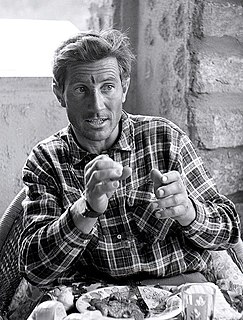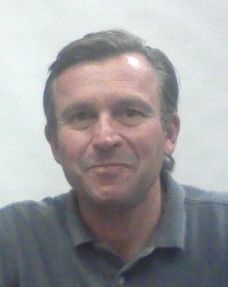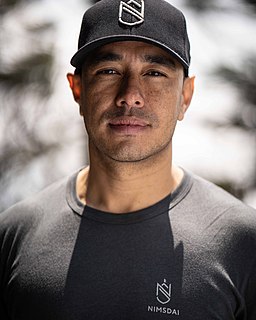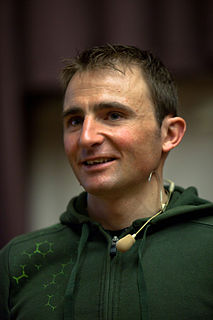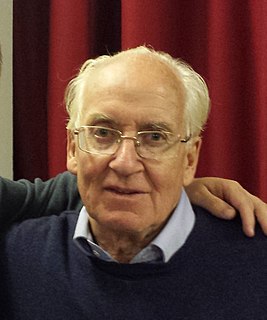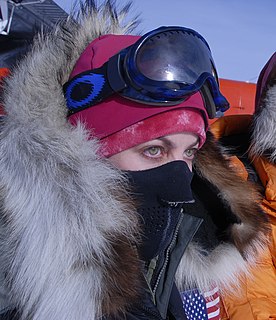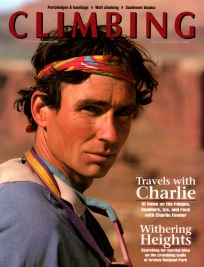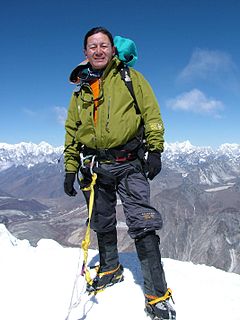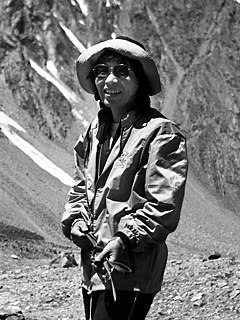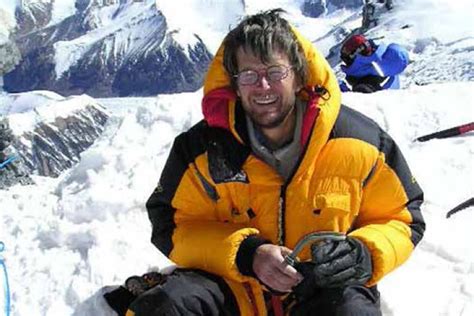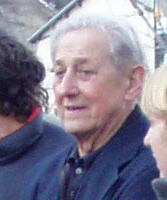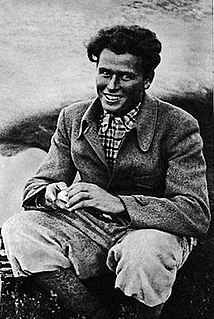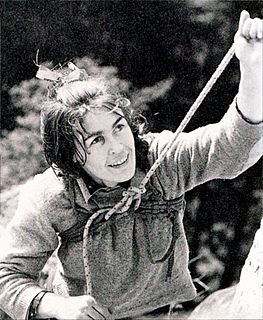A Quote by Walter Bonatti
The solitary ascent of the Dru had the immediate effect of expanding the horizons of my ideas about mountaineering. It made me aware of possibilities well in advance of the times, which were characterized by very restricted methods. This was how the superb pyramid of K2 surfaced once more in the list of my projects. But I chose K2 as a way for giving concrete form to my new concept of mountaineering: to climb the second highest mountain in the world solo, alpine style, and without oxygen.
Quote Topics
About
Advance
Alpine
Ascent
Aware
Chose
Climb
Concept
Concrete
Effect
Expanding
Form
Giving
Had
Highest
Horizons
How
Ideas
Immediate
List
Made
Me
Methods
More
Mountain
Mountaineering
New
Once
Once More
Oxygen
Possibilities
Projects
Pyramid
Restricted
Second
Solitary
Solo
Style
Superb
Times
Very
Way
Well
Were
Which
Without
World
Related Quotes
For me, the value of a climb is the sum of three inseparable elements, all equally important: aesthetics, history, and ethics. Together they form the whole basis of my concept of alpinism. Some people see no more in climbing mountains than an escape from the harsh realities of modern times. This is not only uninformed but unfair. I don’t deny that there can be an element of escapism in mountaineering, but this should never overshadow its real essence, which is not escape but victory over your own human frailty.
…life isn’t a puzzle to be solved. It’s an adventure to be savored. Let every challenge be a new mountain to climb, not an obstacle to get in your way and stop you. Yeah, it’ll be hard, but once you reach the summit of it, you’ll be able to see the world for what it really is. And at the top, it never seems to have been as difficult a feat to climb there as you first made it out to be. Most of all, you’ll know that you beat that mountain, and that you rule it. It does not rule you.
The philosophy of Atheism represents a concept of life without any metaphysical Beyond or Divine Regulator. It is the concept of an actual, real world with its liberating, expanding and beautifying possibilities, as against an unreal world, which, with its spirits, oracles, and mean contentment has kept humanity in helpless degradation.
